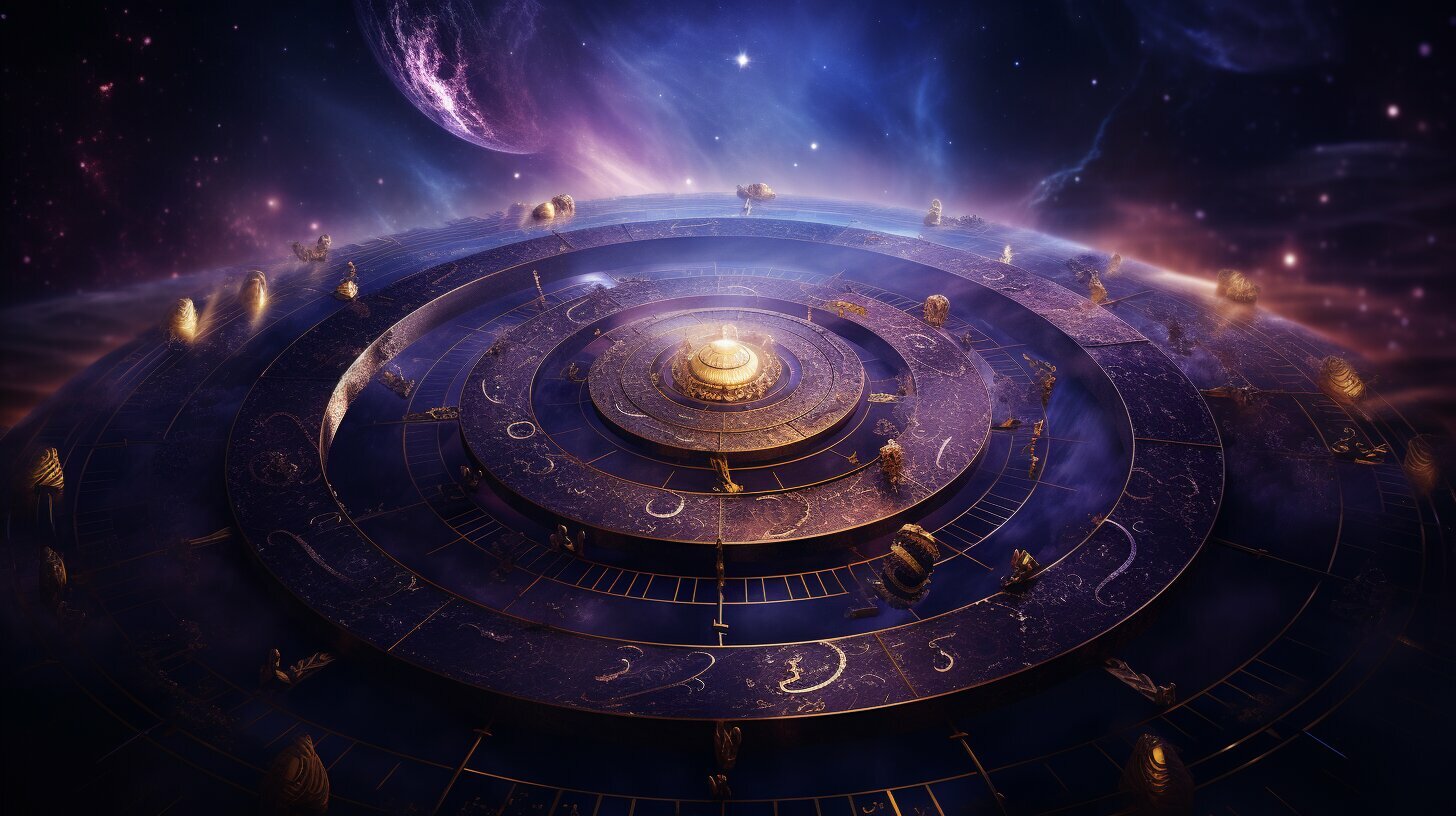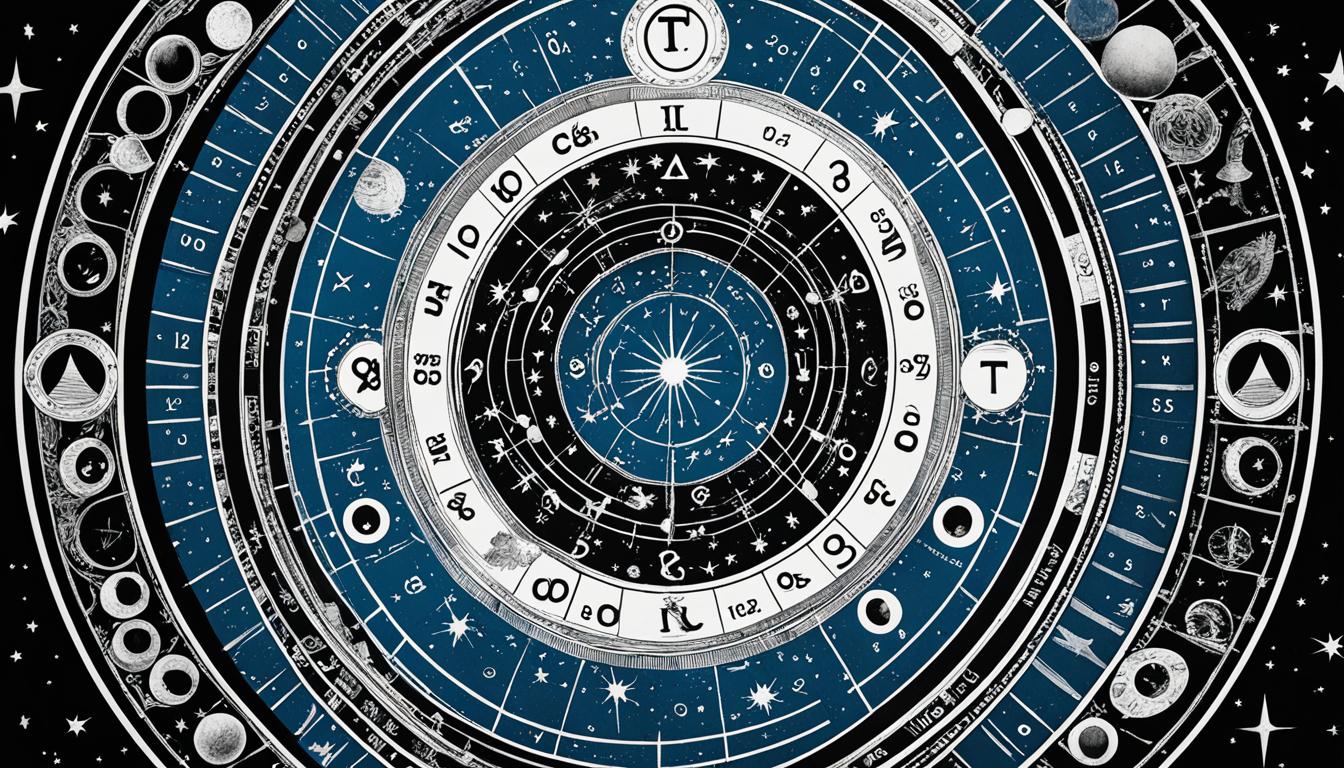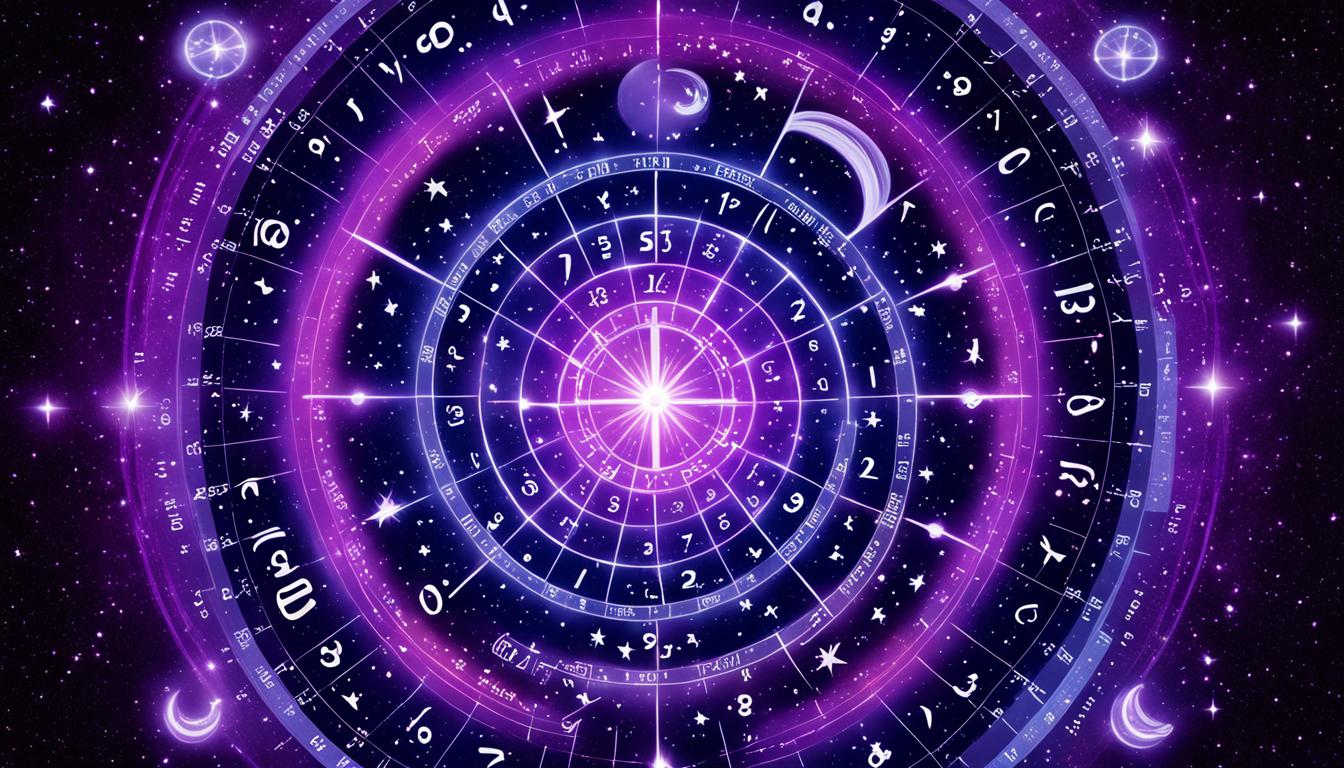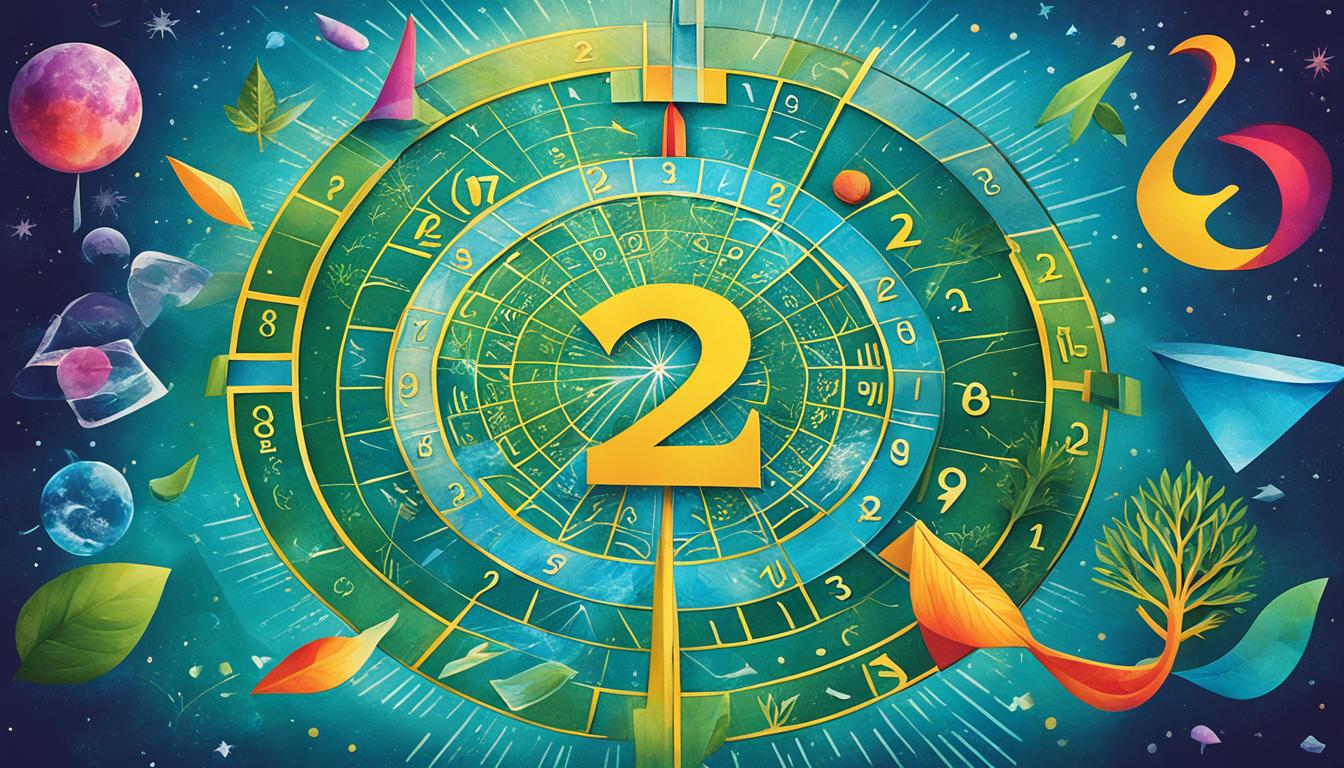Have you ever wondered where numerology came from and who started it all? In this article, I will explore the fascinating history of numerology and the key figures who played a role in its development.
Numerology has been around for thousands of years and was practiced by ancient civilizations such as the Egyptians and Chinese. It has since evolved and transformed, adapting to different cultural and philosophical contexts.
- Numerology has ancient roots, being practiced by early civilizations such as the Egyptians and Chinese.
- The origins of numerology are shrouded in mystery, but it has been credited to Pythagoras, the influential philosopher and mathematician.
- Numerology has continued to evolve and maintain relevance in modern times, impacting various aspects of life such as psychology, business, and personal development.
The Ancient Roots of Numerology
As we explored in the previous section, numerology has a long and rich history that spans across cultures and civilizations. In this section, we will take a closer look at the ancient origins of numerology and how it was practiced by early societies.
The Origins of Numerology Practices
The exact origins of numerology practices remain unclear, but evidence suggests that it emerged in ancient civilizations like Egypt, Babylon, and China. These societies had a deep fascination with numbers and their symbolic meanings, and many believed that numbers held mystical and spiritual significance.
For instance, in ancient Egypt, numerology was used in conjunction with astrology to predict the future and gain insight into the divine. Similarly, in China, numerology was used to interpret the meaning of names and date of birth, with each number carrying specific meanings and energies.
Ancient Numerology Systems
The ancient numerology systems varied across different cultures and societies. For example, the Chaldean numerology system, which originated in Babylon, assigned different values to letters in a person’s name and used those values to calculate their “destiny number.”
Similarly, the Pythagorean numerology system, which was popularized by the ancient Greek philosopher Pythagoras, assigned numerical values to letters of the alphabet and used those values to explore the relationships between different numbers and their vibrations.
Numerology and Divination
Numerology was often used as a form of divination, or the practice of seeking spiritual insight through various techniques. In many ancient cultures, numerologists were respected and sought after for their ability to interpret the meaning behind numbers and their significance in a person’s life.
For example, in ancient China, numerologists would be consulted to help choose auspicious dates for important events like weddings and business deals. Similarly, in ancient Greece, Pythagorean numerology was used to explore the relationships between numbers and music, with many believing that music had a divine and mystical quality.
These ancient practices laid the foundation for modern numerology and continue to influence the way we interpret numbers and their significance in our lives.
Pythagoras: The Founder of Numerology
Pythagoras is credited as the father of numerology. He was a Greek mathematician, philosopher, and mystic who lived in the sixth century BCE. Pythagoras believed that numbers held a mystical quality and that they could reveal deep truths about the universe and human existence.
He is known for his famous theorem in geometry, but his contributions to numerology are equally significant. Pythagoras believed that numbers were the building blocks of the universe and that they had a divine meaning that could be deciphered through calculation and analysis.
Pythagoras created a system in which each number from one to nine was assigned a unique meaning and significance. These meanings were based on the numerical value assigned to each letter in the Greek alphabet. For example, the number one was associated with unity and the beginning of all things, while the number two represented duality and balance.
Pythagoras’s Influence on Numerology
Pythagoras’s teachings on numerology had a profound influence on Western philosophy and esoteric traditions. His ideas were passed down through his followers, known as Pythagoreans, who continued to develop and refine his system of numerology.
Pythagoras’s numerology system was later adopted by other ancient cultures, including the Egyptians, who used it in their systems of divination and magic. It also influenced the development of Kabbalistic numerology in Judaism and the Chinese system of Feng Shui.
Other Key Contributors in Numerology
While Pythagoras is often credited as the founder of numerology, there were many other individuals who made significant contributions to the development and popularization of this ancient practice. Let’s take a look at some of these pioneers in numerology:
| Name | Contribution |
|---|---|
| Claudius Ptolemy | An influential astrologer who wrote extensively on the significance of numbers in the interpretation of celestial events. |
| St. Augustine of Hippo | A Christian theologian who believed that numbers were imbued with spiritual significance and could be used to reveal divine truths. |
| Albertus Magnus | A medieval philosopher who emphasized the importance of numerical symbolism in interpreting the natural world and human experience. |
| John Dee | An Elizabethan scholar and advisor to Queen Elizabeth I who used numerology in his studies of alchemy and divination. |
These early proponents of numerology helped to establish its significance and influence in various fields of knowledge, ranging from philosophy and religion to science and medicine.
Modern Contributions to Numerology
In addition to these historical figures, there have been many contemporary authors and practitioners who have helped to promote and advance the study of numerology. One notable example is Juno Jordan, an American numerologist who is known for developing a system of numerology that is based on the principles of Pythagorean numerology. Jordan’s work has been widely influential and has helped to popularize numerology in the United States and beyond.
Other modern contributors to the field of numerology include authors and teachers such as Sonia Choquette, Dan Millman, and Glynis McCants, who have written books and offered courses on the subject. These individuals have helped to expand the reach of numerology and to make it more accessible to a wider audience.
Numerology in Ancient Cultures
In ancient times, numerology was a widely practiced and respected spiritual discipline in many cultures. The belief in the power and significance of numbers permeated various aspects of life, from the construction of buildings and monuments to the interpretation of dreams and omens.
Ancient Egyptian numerology focused on the concept of “heka,” or magic, which was believed to be infused in all things, including numbers. Numerology was used to predict the outcome of events, determine favorable dates for important occasions, and even guide the afterlife journey of the deceased.
| Country/Culture | Numerology Practices |
|---|---|
| Ancient China | Numerology was integrated into the I Ching, a divination system that used 64 symbolic hexagrams to provide guidance on personal matters and governance. |
| Ancient India | Numerology was part of the Vedic tradition, with each number assigned a specific vibration and meaning. It was used for selecting auspicious names, predicting compatibility between couples, and determining life path and destiny. |
Numerology was also a fundamental component of Pythagorean philosophy, which emphasized numerical patterns and relationships as the basis of reality. Pythagorean numerology tied each number to a specific archetype or symbol, and believed that the universe was constructed according to a mathematical plan.
The widespread influence and usage of numerology in ancient cultures underscores its enduring appeal and significance throughout history.
Numerology’s Evolution Over Time
As with many ancient practices, numerology has gone through various transformations over time, shaped by different cultural contexts and philosophical movements. Early numerology was primarily concerned with divination and predicting the future, while later interpretations focused more on personal growth and self-awareness.
One significant shift occurred during the Renaissance, when numerology became closely associated with the study of mathematics. This was largely due to the influence of Pythagoras, who believed that numbers held a mystical significance and that mathematical patterns underpinned all of creation.
In the 20th century, numerology experienced a surge in popularity, thanks in large part to the work of early proponents such as L. Dow Balliett and Florence Campbell. These writers developed new systems of numerology that placed a greater emphasis on individual personality traits and self-discovery.
The Esoteric Schools of Numerology
Esoteric numerology, which emphasizes the spiritual and metaphysical dimensions of numerology, emerged in the 20th century as well. Proponents of this approach believe that numbers have a vibrational energy that can be used for healing and transformation.
Esoteric numerology draws heavily on ancient wisdom traditions such as Kabbalah, which assigns mystical meaning to letters and numbers, and Hinduism, which uses numerology to interpret the significance of cosmic rhythms and cycles.
The Modern Applications of Numerology
Today, numerology continues to be widely used for a variety of purposes. It has found a place in fields such as psychology, where it is used as a tool for self-discovery and reflection, and in business, where it is used to analyze market trends and consumer behavior.
Some people also use numerology for spiritual purposes, finding guidance and insight in the numbers that appear in their lives. Numerology is also popular among many New Age and alternative health practitioners, who see it as a way to understand the subtle energies that flow through the body.
While it has certainly evolved significantly over time, numerology remains a fascinating and enduring practice that continues to captivate people across the world.
The Influence of Numerology in Modern Times
As someone who has been studying numerology for years, I am constantly fascinated by its impact on various aspects of modern life. From psychology to business to personal growth, numerology has continued to shape our understanding of the world around us.
One area where numerology has gained significant attention is in the field of personal development. Many people have turned to numerology as a way to gain insight into their personality traits, strengths, and weaknesses, as well as to better understand their life path and purpose. By examining the numbers associated with their name and birthdate, individuals can gain a deeper understanding of themselves and their place in the world.
But numerology’s influence extends far beyond personal development. In business, numerology is often used to help determine the most auspicious names for companies and products, as well as to analyze market trends and make predictions about the future. In the entertainment industry, numerology is sometimes used to help choose auspicious dates for movie releases and other events.
Despite its enduring popularity, numerology is not without its skeptics. Some argue that it lacks scientific basis and relies too heavily on subjective interpretations of numbers and symbols. However, proponents of numerology maintain that it offers a unique perspective on the world and can be a valuable tool for personal growth and self-awareness.
Regardless of one’s personal beliefs about numerology, it is clear that this ancient practice continues to play a significant role in our modern world.
Numerology’s Popularity Today
As numerology has continued to evolve and adapt, its popularity has only grown. Today, it is widely recognized and practiced in various forms around the world.
One of the reasons for its enduring popularity is its role in entertainment. Numerology has been featured in movies, TV shows, and books, often presented in a mystical or magical light. It has also been embraced by many spiritual and New Age communities, who see it as a means for personal growth and self-discovery.
In addition to these more esoteric uses, numerology has also found a place in fields such as psychology, business, and personal development. Many practitioners use numerology to gain insights into personality traits, career paths, and life goals. Some even use it to make important decisions or diagnose health issues.
Despite its widespread popularity, numerology remains a subject of debate and skepticism. Some see it as little more than superstition, lacking any scientific basis. Others, however, argue that it has a long and rich history, and that its insights can be valuable when used responsibly and thoughtfully.
The Validity of Numerology
As with any practice or belief system, the validity of numerology has been a topic of debate among scholars and skeptics. Some critics argue that there is no scientific basis for numerology and that it relies solely on subjective interpretations.
However, proponents of numerology point to its ancient roots and historical significance as evidence of its validity. The practice has been used for centuries by cultures such as India, China, and Egypt, suggesting that there is some universal truth to its principles.
Additionally, many individuals report experiencing personal transformations and insights through the use of numerology, indicating that it may hold some value as a tool for self-discovery and personal growth.
The Skeptic Perspective
Skeptics argue that the principles of numerology are vague and open to interpretation, and that any connections drawn between numbers and events or characteristics are purely coincidental. They suggest that numerology, like other forms of divination, relies on confirmation bias – the tendency to interpret information in a way that confirms preexisting beliefs or assumptions.
Furthermore, critics point out that numerology has no scientific basis and has not been subject to rigorous testing or peer review. Without evidence to support its claims, they argue that it cannot be considered a valid or reliable practice.
The Believer Perspective
Believers in numerology argue that the significance of numbers extends beyond mere coincidence or confirmation bias. They suggest that numbers hold inherent meaning and power, and that patterns and relationships between them can reveal insights into the nature of the universe and our place within it.
Additionally, proponents of numerology point out that it has been used successfully in diverse fields such as business, psychology, and personal development. They argue that the practical applications and benefits of numerology provide evidence of its effectiveness and validity.
Ultimately, the validity of numerology remains a matter of perspective and belief. While skeptics may dismiss it as unscientific and unreliable, believers continue to find value and meaning in its principles and practices.
Numerology and Personal Transformation
Numerology, with its roots in ancient cultures, has been used as a tool for personal growth and self-awareness for centuries. The practice involves assigning significance to numbers and using them to gain insight into one’s character, motivations, and life path.
Through numerology, we can gain a deeper understanding of ourselves and our place in the world. By analyzing our birthdate and name, we can uncover hidden meanings and patterns in our lives. This can help us identify areas for personal growth and development, as well as guide us in making important life decisions.
By paying attention to recurring numbers in our lives, we can also gain insight into our spiritual journey and connect with the universe on a deeper level. Numerology can help us tap into our intuition and unlock our full potential.
Many individuals and businesses have used numerology to gain a competitive edge in various aspects of life, including relationships, career, and finances. The power of numerology lies in its ability to reveal hidden truths and provide guidance for personal transformation.
Numerology’s Role in Contemporary Numerical Systems
As numerology has progressed over time, it has also intersected with contemporary numerical systems, such as computer algorithms and data analytics. Many modern-day companies and organizations use numerology to develop algorithms and predictive models for a variety of purposes, ranging from stock market analysis to social media engagement.
One significant example of numerology’s role in contemporary numerical systems is the use of the Pythagorean system, named after the famous mathematician and numerologist. This system assigns numerical values to letters, allowing words and phrases to be converted into numbers. Marketers and businesses use this system to analyze customer names, birth dates, and other personal information to better target their products and services.
Additionally, numerology has influenced the development of digital systems that rely on numerical sequences and patterns. For example, many computer systems use the Fibonacci sequence, a numerical pattern based on the Golden Ratio, which is believed to represent natural harmony and balance. Numerology has also contributed to the practice of numerology data analysis, which is used in fields such as astronomy and biology to study numerical patterns and relationships.
Numerology’s Influence on Data Analytics
Today, numerology continues to play an integral role in the field of data analytics. Numerological insights are used to identify patterns, predict outcomes, and better understand the relationships between data sets. By analyzing numerical patterns and sequences, data scientists and analysts can develop more accurate predictive models, which can help organizations make better-informed decisions.
One example of numerological data analysis is the use of the Law of Fives, which is based on the idea that the number five represents change. Businesses use this law to analyze market trends and identify emerging patterns that could signal upcoming changes in consumer behavior or market demand.
In conclusion, numerology’s influence on contemporary numerical systems is significant and continues to evolve. As businesses and organizations increasingly rely on data analysis to drive decision-making, it is likely that numerological insights will continue to play an important role in both theory and practice.
Conclusion
In conclusion, the history of numerology is rich and complex, with roots dating back to ancient civilizations. Pythagoras is often credited as the founder of numerology, but other notable individuals such as Augustine of Hippo and Johann Heinrich Pestalozzi also made significant contributions to its development.
Over time, numerology has evolved and adapted to different cultural and philosophical contexts, with its influence seen in modern fields such as psychology, business, and personal development. Despite debates surrounding its scientific validity, numerology remains popular today, with its use as a tool for personal growth and self-awareness drawing on its historical significance.
Furthermore, numerology has intersected with and influenced contemporary numerical systems, such as computer algorithms and data analytics. As we continue to integrate technology into our lives, it is likely that numerology will continue to play a role in shaping our understanding of numbers and their meanings.
Overall, the enduring relevance and popularity of numerology speaks to its ability to capture the human fascination with numbers and their hidden meanings. Whether you are a skeptic or a believer, the history and significance of numerology is worth exploring.
FAQ
Q: Who started numerology and what is its history?
A: Numerology has a long history, with its origins dating back to ancient civilizations such as Egypt, China, and India. While it is difficult to pinpoint a single founder, Pythagoras, the Greek philosopher and mathematician, is often credited as one of the early proponents and influential figures in the development of numerology.
Q: How did numerology evolve over time?
A: Numerology has evolved and transformed throughout history, adapting to different cultural and philosophical contexts. It has influenced various aspects of modern life, including psychology, business, and personal development.
Q: What is the influence of numerology in modern times?
A: Numerology continues to impact various aspects of modern life. It plays a role in entertainment, spirituality, and self-discovery.
Q: Is numerology considered scientifically valid?
A: The validity of numerology is a subject of debate. While skeptics question its accuracy and scientific basis, believers find value in its historical significance and personal transformational potential.
Q: How can numerology be used for personal growth and self-awareness?
A: Numerology can serve as a tool for personal growth and self-awareness. By understanding the meanings and symbolism behind numbers, individuals can gain insights into their strengths, weaknesses, and life path.
Q: How has numerology influenced contemporary numerical systems?
A: Numerology has intersected with contemporary numerical systems, such as computer algorithms and data analytics. Its influence can be seen in various fields where numbers play a significant role.
Note: As this FAQ section is a compilation of the provided briefs, it does not include a conclusion.



